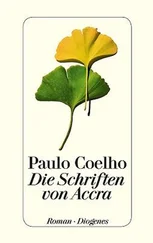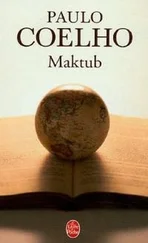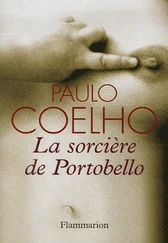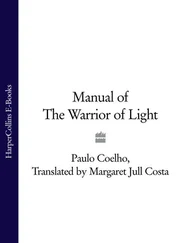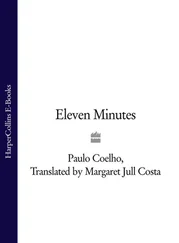That same day, the author had another opportunity to savour public recognition. While waiting for the plane at Lyons airport he was approached by a fellow Brazilian, who told him that he had read and admired his work. On being called to take the bus to the plane, they walked together to the gate, but the other Brazilian, when asked to produce his boarding pass, couldn’t find it. Anxious that the other passengers would grow impatient as the man searched clumsily through his things, the Air France employee moved him to one side, and the queue moved on.
Out of kindness, Paulo Coelho stood beside his fellow countryman, but was told: ‘Really, you don’t need to wait. I’ll find it in a minute.’
All the other passengers were now seated in the bus, and the Air France employee was threatening to close the door. ‘I’m sorry, but if you haven’t got a boarding pass, you can’t board the plane.’
The Brazilian began to see his holiday plans falling apart, but he wasn’t going to give up that easily. ‘But I know I’ve got it. Only a few minutes ago I showed it to the author Paulo Coelho, who was with me, because I wanted to know if we were going to be sitting next to each other.’
The Frenchman stared at him. ‘Paulo Coelho? Do you mean that man is Paulo Coelho?’ On being assured that this was so, he ran over to the bus, where the passengers were waiting for the problem to be resolved, and shouted, ‘ Monsieur Paulo Coelho! ’ Once the author had stood up and confirmed that he had indeed seen his fellow Brazilian’s boarding pass, the Frenchman, suddenly all politeness and cordiality, beckoned to the cause of the hold-up and allowed him to board the bus.
Night has fallen in Budapest when a tall, thin young man announces that there are to be no more photos or questions. To the protests of both journalists and fans, Paulo Coelho is now seated in the back of a Mercedes, its age and impressive size suggesting that it may once have carried Hungary’s Communist leaders. Also in the car are the men who are to be his companions for the next three days: the driver and bodyguard, Pal Szabados, a very tall young man with a crew cut; and Gergely Huszti, who freed him from the reporters’ clutches and who is to be his guide. Both men were appointed by the author’s publisher in Hungary, Athenäum.
When the car sets off, and even before Gergely has introduced himself, Paulo asks for a moment’s silence and, as he did in the plane, he gazes into the distance, raises his forefinger and middle finger, and for a few seconds prays. He performs this solitary ceremony at least three times a day – when he wakes, at six in the evening and at midnight – and repeats it in planes when taking off and landing and in cars when driving off, regardless of whether he is on a long-haul flight or a short trip in a cab.
On the way to the hotel, Gergely reads out the planned programme: a debate followed by a signing session at the book festival; a visit to the Budapest underground with the prefect, Gabor Demszky; five individual interviews for various television programmes and major publications; a press conference; a photo shoot with Miss Peru, one of his readers (who is in Hungary for the Miss Universe contest); two dinners; a show at an open-air disco …
Coelho interrupts Gergely in English. ‘Stop there, please. You can cut out the visit to the underground, the show and Miss Peru. None of that was on the programme.’
The guide insists: ‘I think we should at least keep the visit to the underground, as it’s the third oldest in the world … And the prefect’s wife is a fan of yours and has read all your books.’
‘Forget it. I’ll sign a book especially for her, but I’m not going to the underground.’
With the underground, the disco and Miss Peru scrapped, the author approves the schedule, showing no signs of fatigue in spite of the fact that he has had an exhausting week. With the launch of The Zahir he has given interviews to reporters from the Chilean newspaper El Mercurio , the French magazine Paris Match , the Dutch daily De Telegraaf , the magazine produced by Maison Cartier, the Polish newspaper Fakt and the Norwegian women’s magazine Kvinner og Klœr . At the request of a friend, an aide to the Saudi royal family, he also gave a long statement to Nigel Dudley and Sarah MacInnes from the magazine Think , a British business publication.
Half an hour after leaving the airport, the Mercedes stops in front of the Gellert, an imposing four-star establishment on the banks of the Danube, one of the oldest spa hotels in Central Europe. Before signing in, Paulo embraces a beautiful dark-haired woman who has just arrived from Barcelona and has been waiting for him in the hotel lobby. Holding her hand is a chubby, blue-eyed little boy. She is Mônica Antunes and the boy is her son. Although she acts as Paulo Coelho’s literary agent, it would be a mistake to consider her, as people often do, as merely that, because it accounts for only a small part of the work she has been doing since the end of the 1980s.
Some people in the literary jet set say that behind her beautiful face, soft voice and shy smile lies a ferocious guard dog, for she is known and feared for the ruthlessness with which she treats anyone who threatens her author’s interests. Many publishers refer to her – behind her back of course – as ‘the witch of Barcelona’, a reference to the city where she lives and from where she controls everything to do with the professional life of her one client. Mônica has become the link between the author and the publishing world. Anything and everything to do with his literary work has to pass through the modern, seventh-storey office that is home to Sant Jordi Asociados, named in Catalan after the patron saint of books, St George.
While her Peruvian nanny keeps an eye on her son in the hotel lobby, Mônica sits down with the author at a corner table and opens her briefcase, full of computer printouts produced by Sant Jordi. Today, it’s all good news: in three weeks The Zahir has sold 106,000 copies in Hungary. In Italy, over the same period, the figure was 420,000. In the Italian best-seller lists the book has even overtaken the memoirs of the recently deceased John Paul II. The author, however, doesn’t appear to be pleased.
‘That’s all very well, Mônica, but I want to know how The Zahir has done in comparison with the previous book in the same period.’
She produces another document. ‘In the same period, Eleven Minutes sold 328,000 copies in Italy. So The Zahir is selling almost 30 per cent more. Now are you happy?’
‘Yes, of course. And what about Germany?’
‘There The Zahir is in second place on Der Spiegel ’s best-seller list, after The Da Vinci Code .’
As well as Hungary, Italy and Germany, the author asks for information about sales in Russia and wants to know whether Arash Hejazi, his Iranian publisher, has resolved the problems of censorship, and what is happening regarding pirate copies being sold in Egypt. According to Mônica’s figures, the author is beating his own records in every country where the book has come out. A week after its launch in France, The Zahir topped all lists, including the most prized, that of the weekly news magazine L’Express . In Russia, sales have passed the 530,000 mark, while in Portugal, they stand at 130,000 (whereas Eleven Minutes had sold only 80,000 copies six months after its launch). In Brazil, The Zahir has sold 160,000 copies in less than a month (60 per cent more than Eleven Minutes in the same period). And while Coelho is appearing in Hungary, 500,000 copies of the Spanish translation of The Zahir are being distributed throughout the southern states of America – to reach the Spanish-speaking communities there – and throughout eighteen Latin-American countries.
Читать дальше


